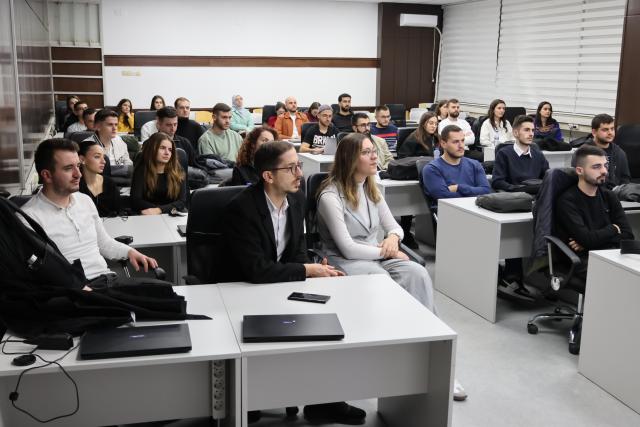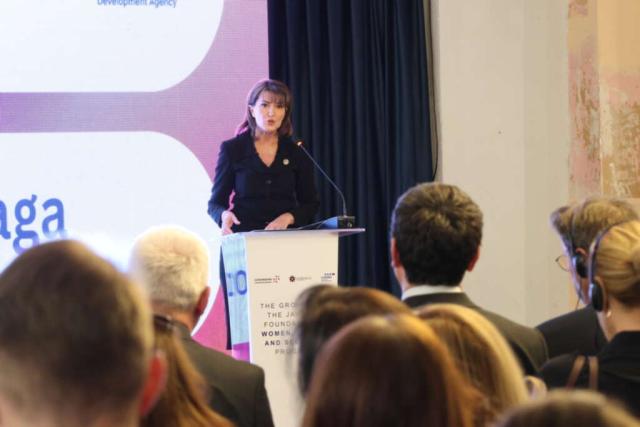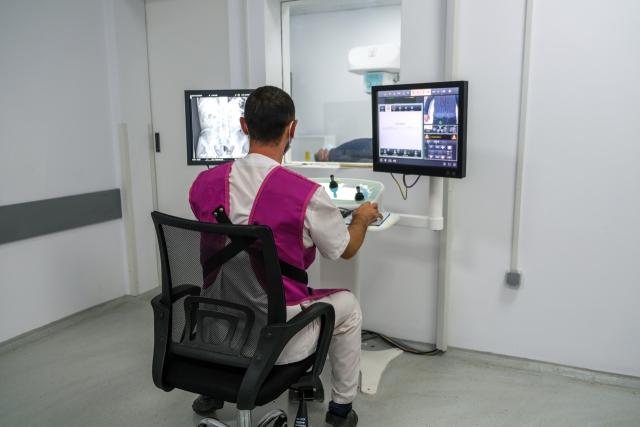In Kosovo, LuxDev focuses on healthcare, vocational training, employment, environmental sustainability, governance, and socio-economic development.
LuxDev in Kosovo
Luxembourg’s development cooperation with Kosovo began in the early 2000s, shortly after the conflict in the region. Initially focused on humanitarian aid and reconstruction, it gradually shifted towards sustainable development projects. LuxDev established a permanent office in Pristina in 2009. In April 2013, Kosovo and Luxembourg signed their first bilateral agreement and a memorandum of understanding, outlining key areas of collaboration: healthcare, vocational and technical training, and water and sanitation.
After 20 years of close cooperation with sectoral ministries and sustained engagement in social development, a third bilateral agreement and a renewed memorandum of understanding were signed in July 2022. Covering the period 2023–2025, these agreements reflect both countries' commitment to diversifying cooperation, integrating the private sector, and fostering research. LuxDev’s support in Kosovo focuses on implementing key reforms and preparing the country for EU accession..

Challenges in Kosovo: healthcare, employment, energy, and governance
Since gaining independence in 2008, Kosovo has made significant economic progress, with a 50% increase in per capita income and a 35% reduction in poverty. However, several challenges remain to ensure sustainable growth.
The healthcare sector faces outdated infrastructure and a shortage of qualified personnel, limiting the quality of medical services.
Unemployment remains high, with youth and women disproportionately affected.
-
Nearly 25%
of the population is unemployed
The vocational training system does not fully align with labour market needs, requiring reforms to equip young people with practical skills and better connect them with the private sector. Supporting entrepreneurship and small and medium-sized enterprises is also crucial for job creation.

Kosovo’s energy sector relies heavily on fossil fuels, with 90% of electricity production still dependent on them.
Meanwhile, although civil society is active, it faces financial constraints and limited political participation opportunities.
Luxembourg provides both technical and financial assistance in these key areas, working closely with local partners under LuxDev’s guidance.
Gallery viewer
Our activities in Kosovo
LuxDev’s initiatives in Kosovo directly address the country’s pressing challenges.
-

Expanding access to quality healthcare
To ensure equitable access to high-quality healthcare, we support the modernisation of the healthcare sector by improving infrastructure and training medical professionals.
-

Promoting employment opportunities
We foster collaboration between public schools and private enterprises. Additionally, we strengthen ties between Luxembourg’s academic institutions and Kosovo’s research sector, particularly in information and communication technologies. We also support the establishment of a dedicated digital skills training centre and promotes training programmes for green jobs.
-

Supporting the energy transition
We assist Kosovo in transitioning to a more sustainable energy system by supporting necessary reforms, promoting energy efficiency, and encouraging the adoption of renewable energy sources.
-

Strengthening good governance
We collaborate with civil society organisations, particularly those advocating for women's rights, community reconciliation, and minority inclusion. We also support initiatives aimed at combating misinformation and promoting media transparency.
-
Encouraging sustainable and inclusive growth
We work with the Kosovo government to implement reforms that foster sustainable and inclusive growth. This includes interventions in innovation, cybersecurity, and e-governance.
Key figures in Kosovo
-
EUR 8,531,199
disbursed in Kosovo in 2025
Distribution of disbursements by sector in 2025
Evolution of activities in Kosovo
Projects in Kosovo
-

In execution Kosovo
Energy transition and climate mitigation in Kosovo
Environment and climate change
Energy transition and climate mitigation in Kosovo -
In execution Kosovo
Sustainable and inclusive growth in Kosovo
Socio-economic development
Sustainable and inclusive growth in Kosovo -
In execution Kosovo
Skills for sustainable jobs in Kosovo
Education, vocational training and employment
Skills for sustainable jobs in Kosovo -
In execution Kosovo
Health sector support programme in Kosovo - Phase II
Health
Health sector support programme in Kosovo - Phase II -
In execution Kosovo
Support to civil society in Kosovo
Governance
Support to civil society in Kosovo









